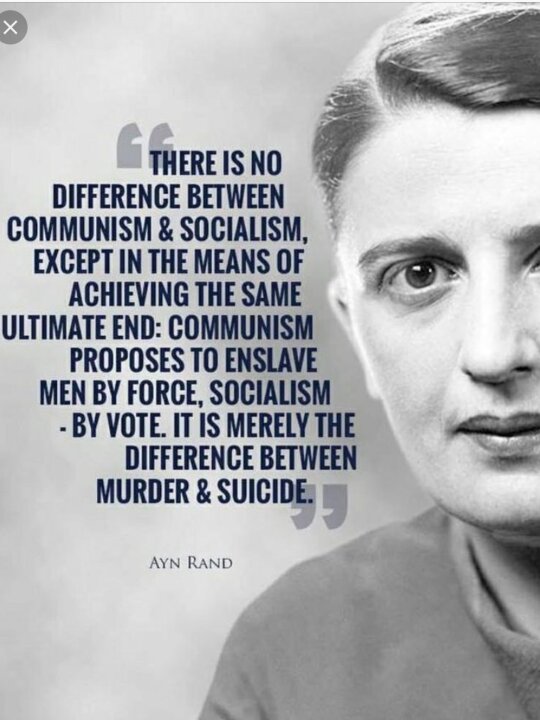This concept is Marxist. You wouldn't think so, but the definition fits.
Notice, I'm not saying Socialist. I'm saying Marxist because the concept is a mirror image of that Marx line in the Gotha Programme ("From each according to his abilities to each according to his needs." )
The concept is insurance. ALL insurance.
You might have heard all kinds of definitions of it, but there is only ONE: A pot of money a large number of people contribute to, with the idea that some people take from it for an unexpected illness or death.
(That is the ONLY correct definition of insurance. I used to be licensed to sell health and life in Florida and had to pass the state exam. I REALLY didn't know the correct definition was that.)
From each according to his abilities, to each according to his needs.
I didn't say Socialist because Socialism is where government OWNS all the means of production in a country. That is the proper definition.
(No, it's not government spending. You can't say paying taxes to maintain roads or pay cop salaries is Socialism.)
Notice, I'm not condemning the concept. Not saying if it is right or wrong, good or evil. Insurance is a part of our life.
(By the way, Social Security is NOT an insurance program, as much as recipients would give you a black eye if you suggest it is. According to the original administrators of Social Security, they argued before the Supreme Court that Social Security was a WELFARE program that is financed by government's ability to tax the population. If anything, Social Security as a financial tool would most likely resemble a life annuity in the private sector. I used to sell those as well. You have to be life licensed to sell them if they come from a life insurance company.)
Again, this isn't a political debate. This is a fact, according to the material. And again, I'm not knocking it. Just giving the right definition.
The concept is insurance. ALL insurance.
You might have heard all kinds of definitions of it, but there is only ONE: A pot of money a large number of people contribute to, with the idea that some people take from it for an unexpected illness or death.
(That is the ONLY correct definition of insurance. I used to be licensed to sell health and life in Florida and had to pass the state exam. I REALLY didn't know the correct definition was that.)
From each according to his abilities, to each according to his needs.
I didn't say Socialist because Socialism is where government OWNS all the means of production in a country. That is the proper definition.
(No, it's not government spending. You can't say paying taxes to maintain roads or pay cop salaries is Socialism.)
Notice, I'm not condemning the concept. Not saying if it is right or wrong, good or evil. Insurance is a part of our life.
(By the way, Social Security is NOT an insurance program, as much as recipients would give you a black eye if you suggest it is. According to the original administrators of Social Security, they argued before the Supreme Court that Social Security was a WELFARE program that is financed by government's ability to tax the population. If anything, Social Security as a financial tool would most likely resemble a life annuity in the private sector. I used to sell those as well. You have to be life licensed to sell them if they come from a life insurance company.)
Again, this isn't a political debate. This is a fact, according to the material. And again, I'm not knocking it. Just giving the right definition.



















